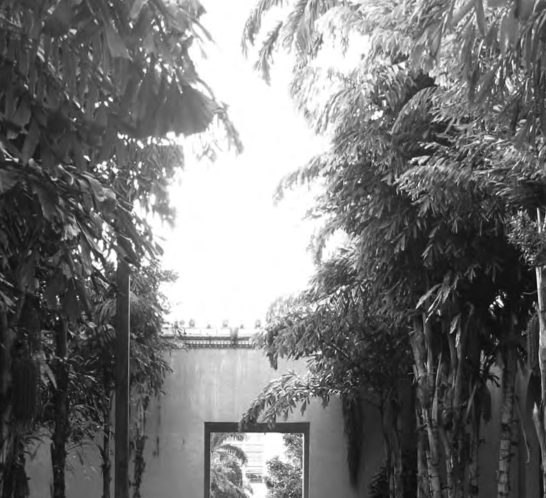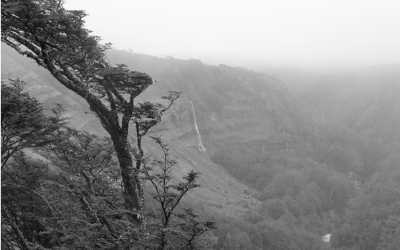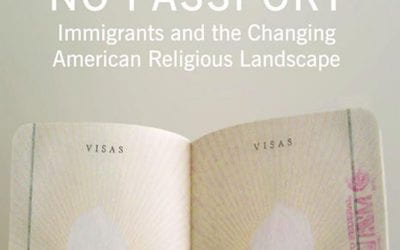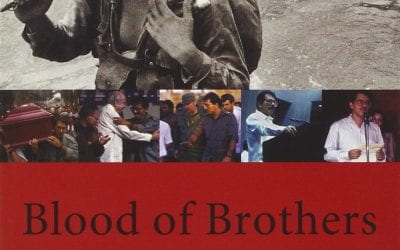Equal Marriage Between My Two Homes
Puerto Rico and Massachusetts
We all should have the right to decide if we want to marry or not. We all should be able to fall in love, and decide if we want to share “the rest of our lives” with one person with whom we share our views and values. This common right among heterosexuals is not as readily available for homosexual couples with the exception of those living in certain parts of the world. One of those is Massachusetts.
While some heterosexual couples decide not to marry, they at least have the right to marriage. Only a few legislators and governments understand that this right is for everyone without regards to sexual orientation.
It is with great pride that I can write this story; my partner and I are one of these homosexual couples that can get married legally. My life has changed (and that of my spouse) with the right to marriage for all couples, including those who are gay and lesbian, in the state of Massachusetts. My hope is that this column can give you (the reader) the importance of such right not just from a legal perspective but from a psychological and sociological perspective and why it is so important for people like me, from Puerto Rico, to gain this right. It is a basic human right!
Growing up in Puerto Rico as a gay Latino man, I never thought possible that I was able to live with the same rights of all others. Growing up I was told that my lifestyle doesn’t deserve the same human rights as everyone else, that we were deviants and can never have “true” love. I knew that what they were saying was wrong but I thought that in my lifetime I would never been able to prove “them” wrong. Thanks to other activists, political figures, and strategists, I’m so proud that I can prove them wrong. I am also proud of the work been conducted currently between Puerto Rico and Massachusetts.
Here in Massachusetts, we are helping couples from Puerto Rico fulfill their dreams of a gay marriage/wedding. We are promoting “special communities” underground marriages between Puerto Rico and Massachusetts GLBT communities. At the same time, we are building stronger bridges among both subgroups and movements. We are making the dreams possible of many gay and lesbian couples. These couples are aware—like couples from other states and US territories—that they do not acquire marriage rights when they go back to Puerto Rico. However, for some of these couples who have married in Massachusetts it means that they can “fight” for equal marriage rights back at home. Some of the Puerto Rican couples that have married here in Massachusetts are using their marriage certificates to fight for equal civil rights back on the Island. I know personally of more than 15 couples who have married here but live in Puerto Rico; some consider their Massachusetts’ “second home” and even are considering moving here if the law doesn’t change in Puerto Rico.
In Puerto Rico, the struggle for equal marriage is happening right now. After the defeat of sodomy laws in the United States, Puerto Rico as a colony also had to revise its laws. Since then, Puerto Rico has been flourishing as a destination for gays, lesbians, bisexuals and transgenders (GLBT), affording them the same rights to all except the right to marriage/civil unions. It has been such a change, that now even the Puerto Rico Tourism Company has developed a “special populations” unit which includes targeting publicity campaigns to attract this market.
As a Puerto Rican living in the state of Massachusetts, I’m lucky to have the same rights including marriage equality. My U.S citizenship is good everywhere I travel but my marriage is not. It is interesting to note that the “mother country” of Puerto Rico, Spain, has afforded equal marriage rights to all, including homosexual couples; so have Mexico, Argentina and other places. Every time I travel I have to think if my spouse and I would be “welcomed.” Now when you go to Puerto Rico, whether Puerto Rican or not, you can know that it is safe to visit and enjoy the GLBT life and nightlife. There are laws that protect us GLBT people and that allows us to have a good time.
I moved to Boston because I fell in love with the city and its universities. Even though I encountered racism and prejudices while attending school, I thought that I needed to learn from these “isms” in order to become an activist. I learned the skills necessary to become a proud young Latino gay professional. Upon graduation, I began to formalize my career and my social activism. I also fell in love. My partner and I knew that we should have the same rights as all other couples that were living together.
So many years thereafter, we gained the rights as all others in this state. The Massachusetts court decision confirmed one of the many reasons why I wanted to stay living in this state, its progressiveness coexisting with its dichotomies.
I have worked with the struggle and the challenges, and know that up to now my work has paid off. I love Massachusetts not only because of the “living” democracy that we can live but because Latino individuals like me now can grow without the families telling them that they don’t deserve the same rights because of their difference. Now a young Latino gay man can have hopes and dreams of dating and finding a good man (or woman) to marry. Now we are equal under the law, we have the same protections under the law as our neighbor does and that we as a family are protected but don’t plan on moving from this state.
There are many gay Latino man growing in Puerto Rico that still hear their families telling them that they are different and that they don’t deserve equal rights. This is about to change in Puerto Rico. However, a small group of leaders in Puerto Rico, straight and GLBT, have been campaigning for the past two years to acquire marriage equality and to consider any two people living together for more than a certain number of years as a domestic partnership with equal rights no matter their sexual orientation. The argument of equal marriage for all is not one that has to do with religion, but with legal rights.
Currently in Puerto Rico Senator Jorge Adolfo de Castro Font presented the controversial Resolution 99 for a constitutional amendment that marriage should be between a man and a woman. This resolution has received opposition from many sectors in Puerto Rico including many heterosexual allies. In addition, the Permanent Joint Commission for the Revision and Reform of the Civil Code of Puerto Rico has held many public hearings to revise a civil code that incorporates equal marriage, inheritance rights for couples living together and not married, and other issues relevant to civil partners not married.
If either of these two strategies is deemed unconstitutional, they would go all the way to the Federal Magistrate in Boston. As a commonwealth, colony of the United States, Puerto Rico is governed federally, and Massachusetts was assigned to Puerto Rico for all final federal-based decisions. All federal magistrates/judges are housed, trained, and meet under the Massachusetts Supreme Court. Yes, Puerto Rico is governed not by their own final courts but by a “supreme” federal court in Massachusetts. All final appeals to decisions from Puerto Rico would come (and have come in the past) to Boston to decide what would be the final say. Strategists in Puerto Rico know this and we hope that if it comes down to it, local federal authorities would deem equal marriage rights to all and not the few, using the local Massachusetts law as guidance.
Until the final decision is cast, we have leaders like myself, who are helping citizens of Puerto Rico fulfill their dreams that are full of love, compassion, and pride, indirectly, from a social perspective rather than from a political perspective. It is important that we all do whatever we can do to bring equal marriage to many other parts of our nation and world. Activists like me work collaboratively with Puerto Rico because it is the nation were we were born and we strongly believe and know that the laws will (are) changing.
The day of my wedding was the happiest day of my life, not only did I marry the love of my life but it instilled in me the feeling that I can go back to those folks who put me down growing up and say to them, I knew things would be different. I see the same happiness in the faces of the many couples that I have helped get married here from Puerto Rico, they experience very similar feelings as those that I felt on my wedding day. It is a feeling that I hear is the same for heterosexual or homosexual couples who married for love.
Spring 2008, Volume VII, Number 3
Wilfred W. Labiosa, MS is a mental health counselor and activist involved in local and national Latino/a GLBT movement. He is co-founder of Somos Latin@s LGBT Coalition of Massachusetts, the only group by and for the local GLBT community and host of the annual Latino Pride Week of New England. For more information on his monthly GLBT column or this group visit, www.somoslatinoslgbt.org.
Related Articles
Editor’s Letter: Puerto Rico
Long, long ago before I ever saw the skyscrapers of Caracas, long before I ever fished for cachama in Barinas with Pedro and Aída, long before I ever dreamed of ReVista, let alone an issue on Venezuela, I heard a song.
God Needs No Passport
For a practicing Buddhist, my first Mass attendance at St. Ambrose two years ago was a memorable event. I had spent the earlier part of the day visiting…
Blood of Brothers: Life and War in Nicaragua
Stephen Kinzer, New York Times Bureau Chief in Nicaragua for most of the war years, pauses in his compelling account of the war and its politics to explain the Socratic method needed to give…





